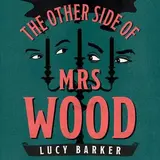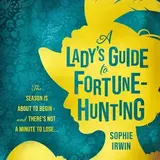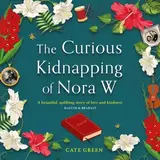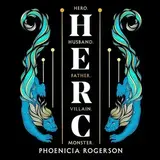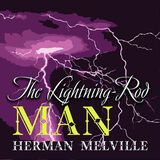

The Lightning-Rod Man
Narrator: Peter Coates
Duration: 18 min
A man sits at his hearth as thunder shakes the mountains. Then—a knock. A stranger steps in, soaked and shivering, armed not with warmth or need, but with polished copper and an urgent offer. He doesn't sell comfort. He sells protection—against the very sky.
The Lightning-Rod Man is Herman Melville at his most compact and cunning. This sharply drawn tale uses one room, one storm, and two voices to stage a quiet war between reason and fear, independence and submission, belief and the glittering promise of safety. It's a sales pitch wrapped in a sermon, disguised as a fable.
Melville's dry wit and subtle irony crackle beneath the thunder. The visitor's obsession with bolts and conductors, with calculated distances and copper rods, is more than technical fuss—it's a worldview, a business model, a quiet tyranny cloaked in science. The narrator's resistance is equally symbolic: a choice to remain unshielded, to risk being struck, rather than surrender to fear disguised as logic.
Short, strange, and simmering with tension, this story feels oddly modern. It speaks to every moment we're asked to buy into anxiety, to protect ourselves from what might happen, if only we pay the right price. Whether you read it as allegory, satire, or subtle horror,
The Lightning-Rod Man still hums with electric relevance.
Herman Melville (1819–1891)
Born in New York City on August 1, 1819, Herman Melville led a life shaped by adventure, hardship, and the constant search for meaning. The third of eight children, he was raised in a once-prosperous family that fell into financial trouble after his father's death. Melville left school early and worked various jobs before going to sea—an experience that would become central to his writing.
At 20, Melville joined a merchant ship, and later a whaling vessel. His time in the South Pacific—where he famously deserted a ship and lived among the Typee people—fed directly into his first books,
Typee (1846) and
Omoo (1847). These works brought him early fame and success.
In 1851, he published his most famous novel, Moby-Dick, a complex tale of obsession, nature, and the human struggle against the unknowable. The book was largely misunderstood in his lifetime and sold poorly. His later novels, like
Pierre (1852) and
The Confidence-Man (1857), also met with criticism and confusion, pushing Melville into near-obscurity.
To support his family, Melville took a job as a customs inspector in New York, where he worked for nearly two decades. Quietly, he continued to write, especially poetry, including works inspired by the Civil War. In 1888, he began his final prose work,
Billy Budd, which remained unpublished until 1924.
Melville died on September 28, 1891, in relative obscurity. It wasn't until the 20th century that his work—especially
Moby-Dick—was re-evaluated and recognized as a cornerstone of American literature. Today, he stands among the essential voices in literary history, known for his deep questions, symbolic depth, and the raw force of his storytelling.
Published by: Strelbytskyy Multimedia Publishing
Similar Titles
See allHow does it work?
Create your account.
Create your free account here.
Download the Voxa app
Available for Android and iPhone from Google Play or App Store.
Try free for 7 days
Enjoy access to 100,000 titles and the entire Voxa experience.
Listen without internet
Download your favorite audiobooks and enjoy them even when you're offline.

















